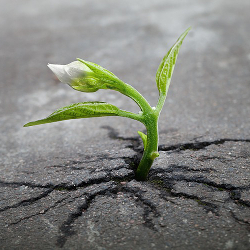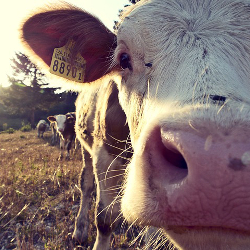“You cannot get through a single day without having an impact on the world around you. What you do makes a difference, and you have to decide what kind of difference you want to make.” – Jane Goodall
Tomorrow marks the 46th consecutive year that the world has celebrated Earth Day. Is the Earth any better off than it was 46 years ago? Are we making a difference? Are we having a positive, regenerative impact on the world around us?
We have to believe we are. We have to believe that the choices we make—the food we purchase, the farmers we support, the clothes we buy—can truly make a difference. Or we wouldn’t go on trying.
The struggle to overcome corporate power, which let’s face it, is at the root of the damage humans inflict on our own ecosystem, isn’t an easy one, or even a linear one. We win some, we lose some.
But we had to smile this week when we read this comment (in Politico) from Pamela Bailey, president of the Grocery Manufacturers Association. She was, as per usual, railing against Vermont’s mandatory GMO labeling law, arguing that Congress must act to prevent the law from taking effect. Otherwise, farmers will lose access to biotechnology.
“We face a paradigm shift in the very nature of American agriculture,” Bailey said.
Yes, we do. Thank goodness.
Monsanto’s sales are down. Acres of GMO crops being planted are down. European countries are banning GMOs and the toxic chemicals used to grow them.
The shift is happening. To a regenerative food and farming system that heals the Earth and everything on it. Because you are making a difference.
Donate to the Organic Consumers Association (tax-deductible, helps support our work on behalf of organic standards, fair trade and public education)
Donate to the Organic Consumers Fund (non-tax-deductible, but necessary for our GMO labeling legislative efforts)
















